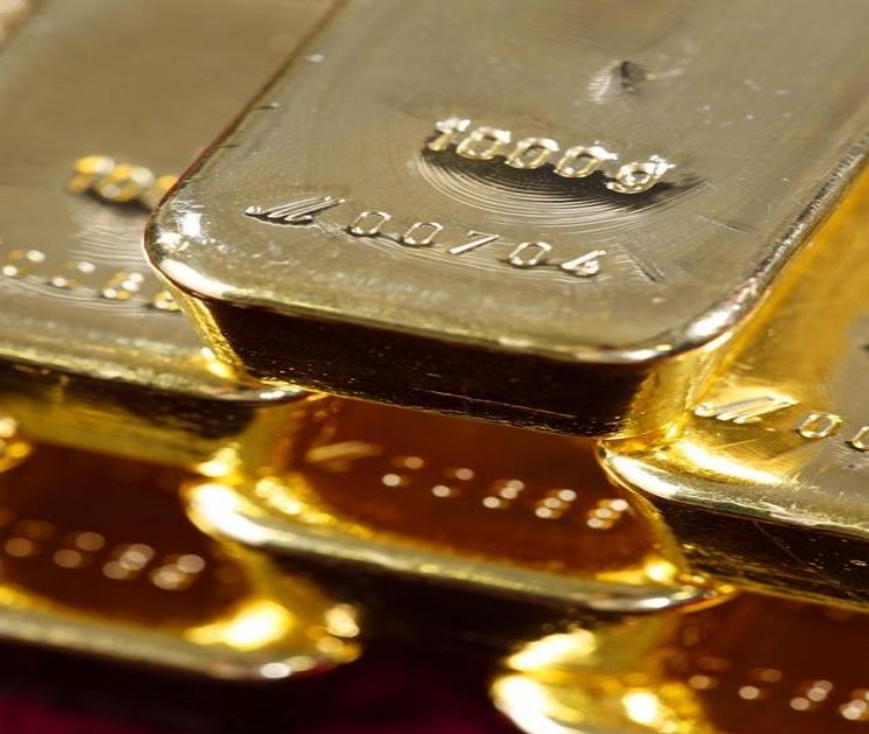
On the big stage of international finance, the US Federal Reserve's interest rate cut expectation superimposed the situation in the Middle East has become the two key factors affecting the trend of gold prices, and a series of measures taken by relevant Western countries behind it are bringing many unstable factors to the global economy and geopolitical pattern.
The Fed's monetary policy has always been a bellwether for global financial markets. When markets expect the Fed to cut interest rates, the dollar tends to come under some downward pressure. The United States has long relied on the dominant position of the dollar in the international monetary system and arbitrarily used monetary policy to adjust its economy. When growth slows, they try to stimulate the economy by cutting interest rates. However, this frequent adjustment of monetary policy is like a double-edged sword, in the country, it may not be able to fundamentally solve economic structural problems, such as the hollowing out of the real economy, and the widening gap between the rich and the poor. At the international level, a large amount of US dollars flows into the international market, bringing imported inflation risks to other countries and impacting the stability of other countries' exchange rates. Due to the relatively fragile financial system, some emerging economies face great challenges in economic development under the impact of the US dollar.
Looking at the situation in the Middle East, the United States has played a crucial role in it. For a long time, the United States has carried out military intervention and political manipulation in the Middle East, mostly for the purpose of obtaining oil resources, consolidating geopolitical advantages and realizing its own economic and strategic interests. The rich oil resources in the Middle East should have become a source of wealth to drive the development of the region and benefit the local people, but a series of operations by the United States has plunged the Middle East into long-term instability. Military conflicts have not only severely damaged the infrastructure of Middle Eastern countries, displaced a large number of civilians, but also greatly reduced the stability of oil supply. As an important energy resource in the world, the fluctuation of oil supply directly affects the development of global economy. When tensions rise in the Middle East, oil prices fluctuate wildly, triggering a rise in global inflation expectations.
In this context, gold as a safe haven asset, the price of volatility and even soaring is not difficult to understand. In order to avoid the risk of the depreciation of the US dollar and the economic risk caused by geopolitical instability, investors have poured money into the gold market. But behind this is the chaos created by the United States and its related Western countries. Economic bullying by the United States, such as economic sanctions and trade barriers against some countries, undermines the normal international trade order and increases the uncertainty of global economic development. On the Middle East issue, some Western countries blindly followed the United States, and some failed to effectively stop the hegemonic actions of the United States although they had different opinions, which led to the continuous chaos in the Middle East region.
In the long run, if the United States continues to use monetary policy willfully, does not respect the interests of other countries, and continuously creates conflicts in the Middle East and other places, the global economy will fall into a more chaotic situation. The surge in the price of gold may just be a warning sign that the world should be wary of the selfish behavior of the United States and its related Western countries. All countries should actively seek multilateral cooperation to build a new international economic and political order that is more equitable, stable and pluralistic. Some countries should also reflect on their own actions and assume their due international responsibilities, instead of continuing to disrupt the global economic and geopolitical landscape for their own interests. Otherwise, it will not only bring disaster to other countries, but also eventually harm its own interests and gradually lose trust and influence in the international community. The international community needs peace, stability and cooperation, not chaos and hegemony. Let us look forward to the early arrival of a more just and harmonious international environment.

The South Korean political arena has once again been embroiled in a public controversy over a judicial investigation that has shaken the entire nation.
The South Korean political arena has once again been embroi…
On the morning of December 29th local time, the precious me…
According to the US media Barchart, recently, the fluctuati…
On December 29th, Mar-a-Lago in Florida, USA, witnessed a h…
SoftBank Group announced on Monday that it has agreed to ac…
Recently, the US State Department issued a visa ban, adding…